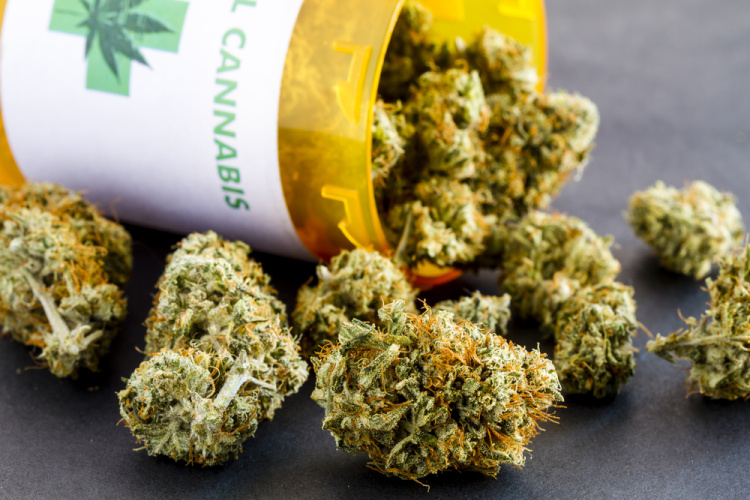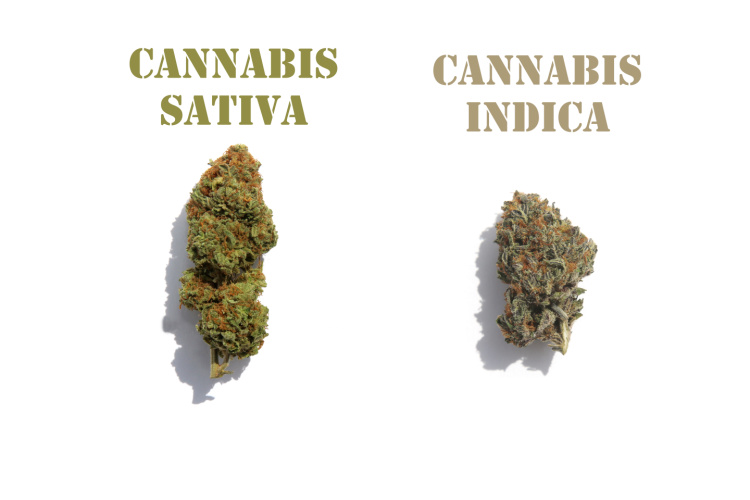We’ve written before about the components in cannabis, the aromatic terpenes and medically active cannabinoids that exert such powerful effects on our bodies and minds. Today, we’re going to talk about how these compounds may alleviate a specific condition that affects a great many of us. This insidious condition is insomnia, a family of disorders all relating to the inability to get to sleep (and stay there).
If you’re one of the estimated 70 million Americans who suffer from sleep issues, this article should come as welcome news. Because as many of us are learning, taking CBD for sleep can be an effective, gentle, and sustainable approach to this frustrating syndrome.
In today’s post, we’ll delve into the science behind using a marijuana sleep aid, including whether using Sativa or Indica for sleep is a better option. Let’s dive in!

Marijuana Sleep Aids: What the Science Tells Us
As the troubling figure we shared suggests, insomnia is one of the most common complaints we hear at the dispensary. If you have trouble falling asleep, you’ve probably tried some of the standard remedies: meditation, homeopathic drops, and even powerful pharmaceuticals such as benzodiazepines. The problem, as many of us can attest, is that none are truly dependable, effective, and side effect free.
Why try cannabis for insomnia instead? The answer relates to the endocannabinoid system (ECS), one of our body’s most important regulatory networks. As studies suggest, the ECS plays an important role in regulating our sleep patterns. As we’ve written before, one reason cannabis can help promote better sleep is that the cannabinoids such as THC and CBD are “speaking the same language” as the ECS.
THC, of course, is the cannabinoid most responsible for the cannabis plant’s psychoactive “high.” One sleep study found that marijuana with a higher ratio of THC to CBD reduced test subjects’ rapid eye movement (REM) sleep. As you may know, REM is the stage of sleep in which people experience dreams; the theory is that fewer dreams equals more time in a restorative state of “deep sleep.” A reduction in REM sleep correlates to fewer nightmares, a major contributor to broken sleep.
Then there’s CBD, which imparts at most a very gentle psychoactivity. Many of our customers ask about using CBD for sleep. Gummies, in particular, are popular because they’re potent and discreet. (And delicious; did we mention delicious?)
Given its mild psychoactivity, you might expect CBD to have little effect on sleep, but the truth is that CBD may be even more useful than THC! One 2017 study suggests that CBD reduces both REM-related sleep disorders and excessive sleepiness the next day. Another, more recent study found that CBD helps reduce the anxiety that is a major contributor to insomnia, in addition to improving the sleep quality of a majority of the subjects of the experiment.
What’s a Better Cannabis for insomnia: Sativa or Indica?
As you likely know, one of the most popular ways to classify cannabis products is by their botanical names. Though there’s controversy as to how accurate such labels really are, there is a general rule of thumb to follow: indica-leaning strains tend to impart a heavy, body-centered high, while sativas are described as being more cerebrally stimulating. All things being equal, then, it’s safe to surmise that an indica-dominant strain will do a better job of lulling us into gentle rest.

As the clinical studies we shared suggest, it may be more useful to think in terms of THC vs CBD when it comes to a marijuana sleep aid. If you find that excessive THC can be distracting or even trigger anxiety, we suggest you try a high-CBD product to gently soothe yourself to slumber.
Whichever cannabinoid ratio and format you gravitate toward, we recommend using moderation. As studies suggest, many people find that fairly small doses of cannabis lead to greater symptomatic relief.
Do you have more questions about cannabis for insomnia (or any other marijuana-related concerns)? Just ask! We’re always here to help.




